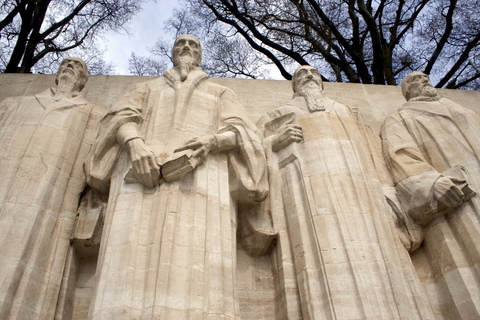
“This move towards unity is a fitting tribute to [16th century Reformer Jean] Calvin by his modern day heirs,” says Peter Borgdorff, President of the Reformed Ecumenical Council (REC). The meeting of the executive committees of the World Alliance of Reformed Churches (WARC) and the Reformed Ecumenical Council marks the first time the two groups have met in the city where Calvin urged the diverse factions of the church to join in “visible unity”.
“How appropriate that these meetings should coincide with celebrations of the 500th anniversary in 2009 of John Calvin,” adds WARC’s President, Clifton Kirkpatrick. “It is proof of his enduring legacy for the worldwide church.”
A group of 40 leaders from 37 churches will gather at the John Knox Centre (21-31 May 2009) to lay the foundations of an organization which will unite 75 million Reformed church members around the world.
Discussions will focus on plans for the merger of the two organizations to form the World Communion of Reformed Churches (WCRC).
“We will be looking at ensuring the financial base of the new organization in light of the current financial climate. This means shaping the structure so that we can meet the challenges of today while planning for the future,” says Borgdorff.
“The objective,” Kirkpatrick emphasizes, “is sustainability.”
The joint executive committee will receive proposals for the staff structure for the WCRC, the location of the organization’s offices and the budget. Programme discussions will include decisions about the future directions of WARC’s flagship initiatives – Covenanting for Justice in the Economy and the Earth; Mission; and Theology and Ecumenical Engagement.
The proposal to merge came in February 2006. The organizations’ executive committees approved the proposal at meetings in 2007. In October 2008, WARC and REC affirmed a draft of the constitution and preliminary plans for transition.
At the time WARC’s president, Kirkpatrick, hailed the move towards unity between the two organizations as “a very significant moment to witness to the reconciliation we find in Christ.”
© 2009 Ekklesia. Posted on Religioscope with permission. An initiative of the Anvil Trust, Ekklesia is a not-for-profit think-tank which works to promote theological ideas in the public square. Website: www.ekklesia.co.uk